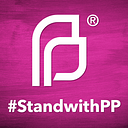Centering Reproductive Health and Justice on Indigenous People’s Day and Beyond
By Elaine Hunt, Planned Parenthood of New York City Activist
On Indigenous Peoples’ Day we celebrate and honor Native American people and commemorate their rich histories and cultures. At PPNYC, we feel it’s also critical to highlight the many ways these communities have been disenfranchised and speak out about how to make sure everyone in America can access the health care they need to thrive.
Indigenous women and populations have historically faced a host of structural barriers to reproductive freedom. In addition to having been victims of a forced sterilization epidemic at the hands of the American government, colonization and the systematic targeting of Indigenous people has stripped these communities of access to sexual and reproductive health care.
In honor of National Indigenous People’s Day, we take a look at these barriers, the laws and regulations that keep them in place, and share some Indigenous-led organizations doing critical work on the ground that need our support.
The Landscape
Access to health care aside, many Indigenous women face difficult odds. One in three Indigenous women will experience sexual violence in their lives, which is more than double the United States national average. Reporting of incidents is confusing, with women unsure of which jurisdiction — state or tribal — to report to.
Moreover, reproductive health care comes at a cost, whether it be traveling to a distant clinic or paying for birth control, emergency contraceptives, or abortion. Indigenous communities are consistently among the poorest in the United States, with more than one in four Indigenous people living in poverty, making financial barriers particularly difficult to overcome.
Most critically, the federal health care program put in place for Indigenous people is chronically underfunded and consistently falls short in its ability to provide services for Indigenous women and communities.
The Role of the Indian Health Service
Indigenous people’s access to reproductive health care is deeply entangled with the Indian Health Service (IHS). The IHS is a federal program that serves more than 2.5 million Native American and Alaska Native people.
As casinos continue to be developed on reservation land, they employ many Indigenous women in minimum wage jobs. These jobs make women ineligible for coverage under Medicaid, but without the financial means to pay for private insurance. For many Indigenous women, IHS is the sole provider of health care services.
IHS is notoriously inconsistent and ineffective in its implementation of policies related to women’s reproductive health. For example, emergency contraception — the morning after pill — only became available to IHS-insured women in 2015, despite being available for all Americans without a prescription more than two years earlier. Instead, women were forced to pay upwards of $50 to purchase the pill without insurance.
A study also showed that 30% of IHS facilities didn’t have a clear protocol in place for the treatment of sexual assault survivors or the collection of forensic evidence. Indigenous people who choose to have a baby are nearly twice as likely to have late or no prenatal compared to the American average, resulting in high infant mortality rates.
The IHS and Abortion
IHS falls under the jursdiction of the Hyde Amendment, a legislative provision that bars the use of federal funds to pay for abortion except in life-saving curcumstances. Even Medicaid, another federally funded health program, has fewer restrictions.
Complying with the Hyde Amendment’s strict abortions rules means that Indigenous people insured under IHS can only get abortions:
- To save the mother’s life
- When the pregnancy is the result of an act of rape
- When the pregnancy is the result of an act of incest
However, despite these already stringent laws, Indigenous people getting legal abortions still face challenges. A study showed IHS personnel themselves were unsure of the policies, with 62% mistakenly believing that IHS funds couldn’t be used even in the case of a pregnant person’s life being endangered by the pregnancy. The same study revealed that 85% of locations where Indigenous people could get abortions were noncompliant with the official IHS abortion policy.
On Indigenous People’s Day and every day, it’s critical that we highlight the care these communities deserve and support the organizations and people doing this advocacy on the ground and in our government.
We encourage you to learn about and support the following groups:
The Native American Women’s Health Education Resource Center
